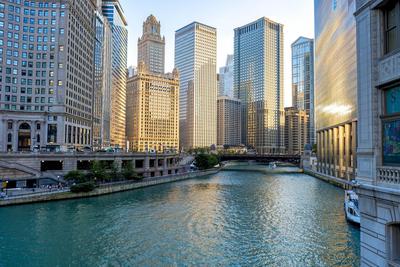Drug Use in San Antonio, TX
Most of us think of cowboys, historic landmarks and southern charm when we hear about San Antonio, Texas. However, there is far more to this large city than meets the eye as drug use and addiction rates continue to rise.

San Antonio is known for a lot of things like the Alamo, cowboys, the San Antonio Spurs, rodeos and Pace picante sauce. However, something more sinister is going on beneath the city's Southern charm and historical facade: illegal drugs are sweeping through the streets and ensnaring residents of all ages, races and socio-ecomonic backgrounds.
Drug use in San Antonio is fast becoming a major concern as it edges its way closer to mirroring the larger general issue of drug abuse that is raging through nation. Reports of abuse, misuse, and distribution of illegal substances has law enforcement and city officials scrambling to find answers and remedies before it's too late.
San Antonio at a Glance
San Antonio has a population of roughly 1,436,697 million people, making it the seventh largest city in the United States. The sheer size of the city alone tends to make the prevalence of drug use all the more common. Furthermore, some argue that close proximity to the border makes it far easier to access the drugs trafficked by Mexican cartels.
In fact, San Antonio is considered to be one of the country's High Intensity Drug Trafficking Areas (HIDTA) by the White House Office of National Drug Control Policy. This means that the city experiences higher than usual incidents of drugs moving across the border from Mexico.
In an effort to combat the flow of drugs being shuttled between South Texas and Mexico, the HIDTA program was enlisted as a specialized unit. They have been put in place and armed with invaluable intelligence, coordination, technology and necessary equipment, which affords them the ability to work towards reducing the methamphetamine, heroin, cocaine and marijuana that is commonly brought into San Antonio.
The HIDTA program has certainly made great strides; in one year alone, 360,783 kg of marijuana, 3,581 kg of cocaine, 224 kg of methamphetamine, 50 kg of heroin and over $40,825,608 worth of cash and weapons were seized. However, drugs still flow into the hands of addicts of all ages in the city, overwhelming the social support structure that exists.
Drug Treatment Falls Short in San Antonio
The city's funding for substance abuse treatment and support is widely deemed inadequate, while the population continues to grow, doubling in the last 16 years. Private testing is available for those that can afford it, or for employers, at Health Street's 14 San Antonio Drug Testing locations.
Funding Sources
The current treatment services and follow up care for addicts are funded by:
Additional funding is made available through private contracts and grants, but these organizations are simply not able to meet the growing demand for treatment, urine drug tests and the necessary aftercare which allows users to re-enter society with healthy minds and bodies.
The fallout caused by insufficient funding leaves an indelible mark upon San Antonio. Law enforcement is left to battle those left untreated. A ripple effect occurs which ultimately costs the city more money.
The National Institute of Justice reports that those in the grips of substance abuse are:
It's overwhelmingly clear that inadequate funding has an impact on not just the drug users in need of treatment, but also on the city and its residents as a whole.
Drugs in San Antonio, TX
There are a variety of drugs moving around San Antonio, but there are two in particular causing increasing concern among law enforcement and city officials: methamphetamine and heroine. The use of both of these street drugs seem to be on the rise in cities across the nation as more and more users are overdosing and even dying at a rapid and alarming rate, prompting major pharmacy chain, CVS to stock overdose-antidote naxolone in stores as a preventive measure.
Methamphetamine in San Antonio
The methamphetamine battle in San Antonio is no secret as law enforcement are routinely seizing it every few weeks during raids and even routine traffic stops. The prevalence of this hardcore and extremely dangerous substance is driving usage rates up rapidly. A 2013 SAMHSA study found nearly 6% residents over the age of 18 stated that they had previously used methamphetamine, which amounts to a whopping 84,000 people. It is expected these statistics will steadily increase as more meth is brought across the boarder by cartels and dealers, despite the hard work of law enforcement.
Methamphetamine is quite possibly one of the worst illegal drugs period. It wreaks havoc on the minds and bodies of users. It is highly addictive and sucks the user into a vortex that is virtually impossible to escape without intensive treatment. Take a look at some of the devastating effects meth can have:
Heroin in San Antonio
Heroin usage in San Antonio is nearing epidemic proportions. Users are turning to it to feed their opioid addictions as prescription narcotics become increasingly hard to come by and more expensive. In the same 2013 SAMHSA study, roughly 3% of the population (42,000 residents) in San Antonio over the age of 18 reported using heroin at some point. Interestingly, the heroin users in the city do not fit the image that most people associate with heroin. In fact, they are often young, Caucasian women with relatively affluent backgrounds. Authorities have attributed much of the increased use of heroin to the Mexican cartels who are bringing in large amounts of the drug in ready to sell packages, providing a cheap and easy fix when addicts have an itch that is in need of scratching.
Much like meth, heroin is a drug that has the ability to overpower users and take hold of them in a way that seems nearly inescapable. It is a drug that isn't used just one time and forgotten about. Instead, it is a drug that consumes the user as it robs them of everything and results in prison time, disease and often death. Heroin's effects mentally and physically include:
Hope for San Antonio
There is hope for San Antonio drug users, though. City officials are working diligently to prevent drug use among residents by providing as many educational services as possible through a variety of programs. In an attempt to assess drug use, organizations like the San Antonio Council on Alcohol and Drugs, CHCS's Public Sobering Unit, and the Restoration Center and Haven for Hope take a proactive approach to the issue by offering housing, health care, substance abuse treatment, Drug Court and crisis intervention. Each of these services help to keep users out of jail, off the streets and hopefully out of the morgue.





